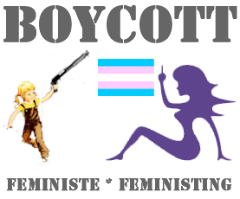"Kyriarchy Illustrated" is an occasional series of posts where I talk about the effects of living in a kyriarchy via my personal experiences. See the first post in the series "A Dyke-Bashing in Liverpool" and find all of the posts so far by clicking on the "kyriarchy illustrated" link at the end of the post.
One of the more annoying things about being discriminated against is you can't always be absolutely sure you are being discriminated against let along be able to prove it to anyone else. For one thing, you're really most familiar with how people treat you and not so much other people, which makes it hard to compare treatment. For another thing, most people, contrary to the beliefs of many, don't call you names or otherwise make it very obvious when they are discriminating against you. They may even think they're being perfectly fair (eg, the US justice system and the racist treatment of convicted murderers). But, perhaps most importantly, many of us have not been told how to identify and deal with discrimination when it happens (eg, in the US, the focus is almost exclusively on not discriminating, not on dealing with discrimination when it inevitably occurs).
Thus, I had grown somewhat complacent crossing international borders as a trans woman. Yes, with my name, my appearance, and my sex/gender marker on official documents I was playing a trans version of
"One of These Things Is Not Like the Other" from Sesame Street, but the routine of them all being considered as congruent by either inattentive or polite officials lulled me into a sense of normalcy. So, it wasn't until after I left my encounter with an immigrations official who found something wrong with every answer that I gave and flipped furiously through my passport, minutely examining every stamp within it before stamping my passport with a final insinuation that I was wholly unaware of immigration law (Au contraire!), that I reflected on just what had gone wrong with the encounter. Playing the encounter back in my head from the start, I realised that it was pretty much right at the time that the immigrations official would have found the answer to that Sesame Street song. This is why
filling out forms and showing ID tend to be very stressful, even dangerous, for trans people. Because I'm sure that official could have refused me entry had zie chosen to do so. Sure, it might have been reversed at some point on appeal, but it might not have been and would have been even more stressful and humiliating plus possibly earning me a black mark as a "troublemaker". Instead, I left the encounter angry and feeling humiliated, knowing that the official acted within hir remit but in a way not in keeping with treating me as I treated hir.
Of course I can't prove any of what I relate above. Unless the official noted something in the record of my crossing, it's merely my word against hirs and besides I'm in the country so what am I complaining about anyway? But that's what I think the nature of a lot of discrimination in a kyriarchy is about, the kind that you can't
prove happened but yet others like you talk about as happening to them and identify it as discrimation as well. The patronising attitude, the assumption that you are stupid or ignorant, the seeming to pick you out to be belittled. Those don't strike me as uncommon experiences for those who have experienced discrimination. The sort of discrimination I experienced is not the kind the law can touch, not the kind the law can remedy all by itself, not even the kind HR policies can eradicate. Which I think it's why it's the most pernicious form.
So, I'm left angry, upset, and yet with nothing to officially complain about and no way to assure that it won't happen again and with a good chance of being faced with the same official in the future (in case you wondered why I have given no distinguishing characteristics). This is what I get for daring to cross borders having dared to crossed a social border.
[Perhaps the most annoying thing about relating this is going to be the people who decide that I'm showing some sort of "male privilege" at thinking I don't deserve to be discriminated against (which is pretty hypocritical when they're arguing against discrimination against themselves and others they see as like them), that I'm engaging in the "Oppression Olympics" (except I'm not directly comparing my discrimination to anyone else's, let alone suggesting it's worse), sweep it aside as some sort of general problem that occurs to the "gender non-normative" (except my gender is pretty normative and my gender presentation/expression is much like my peers or, perhaps worse, my mother. ;) Hi, Mom!), or otherwise excuse this away. But then I'm not really writing for those people, and I suppose I shouldn't let other people's hypocrisy, lies, and deliberate misunderstandings bother me. But I like teaching so it really irritates me to have people refuse to learn when all they have to do is listen or read.]





